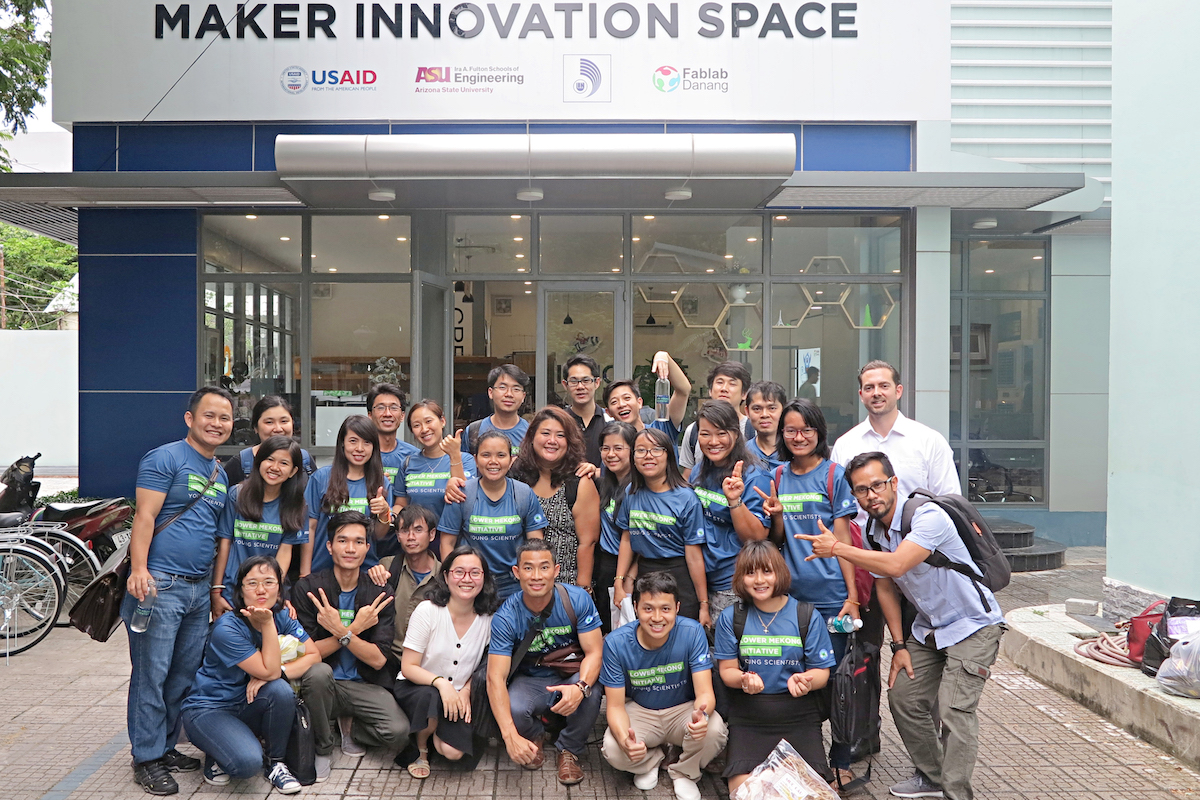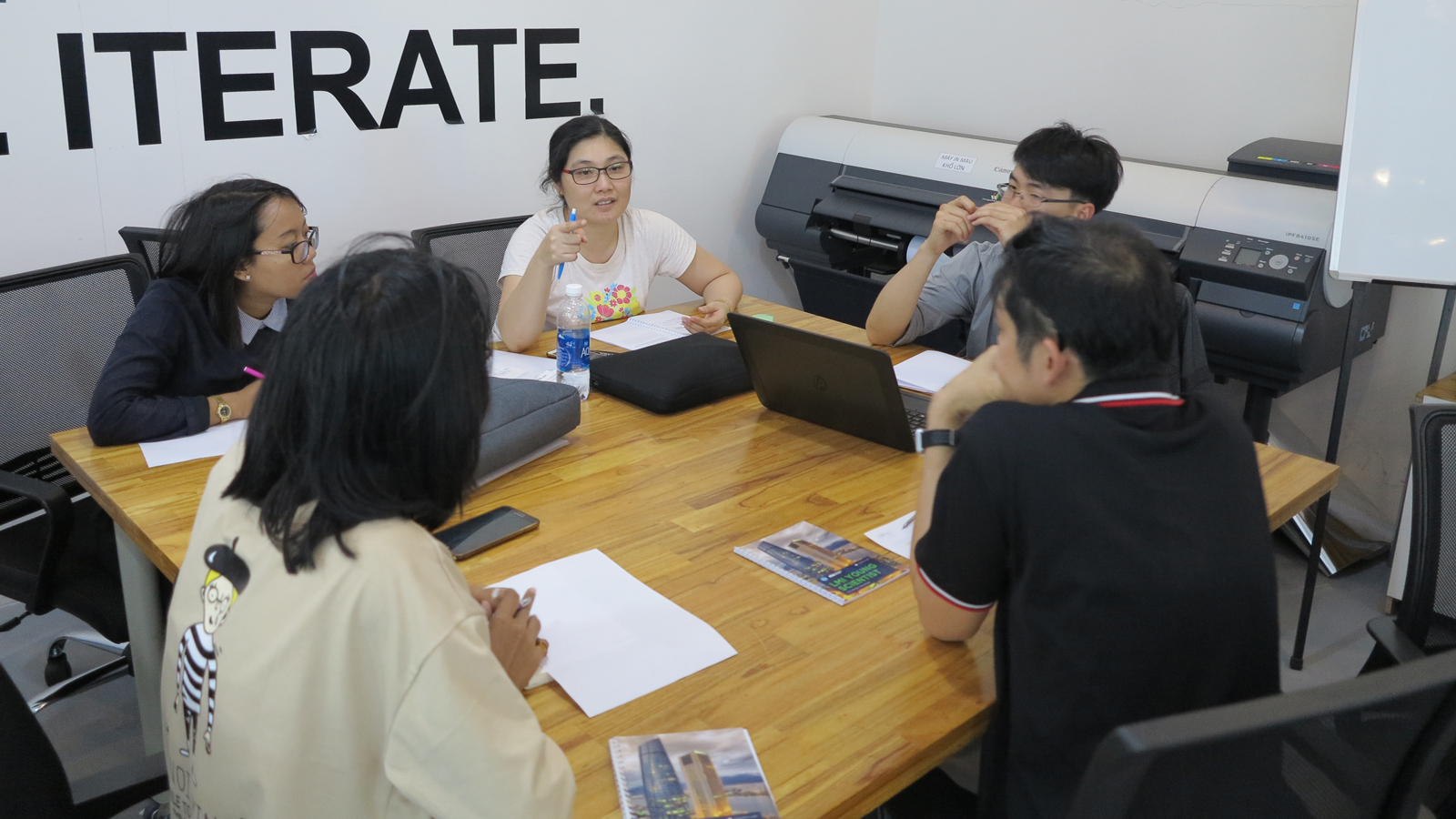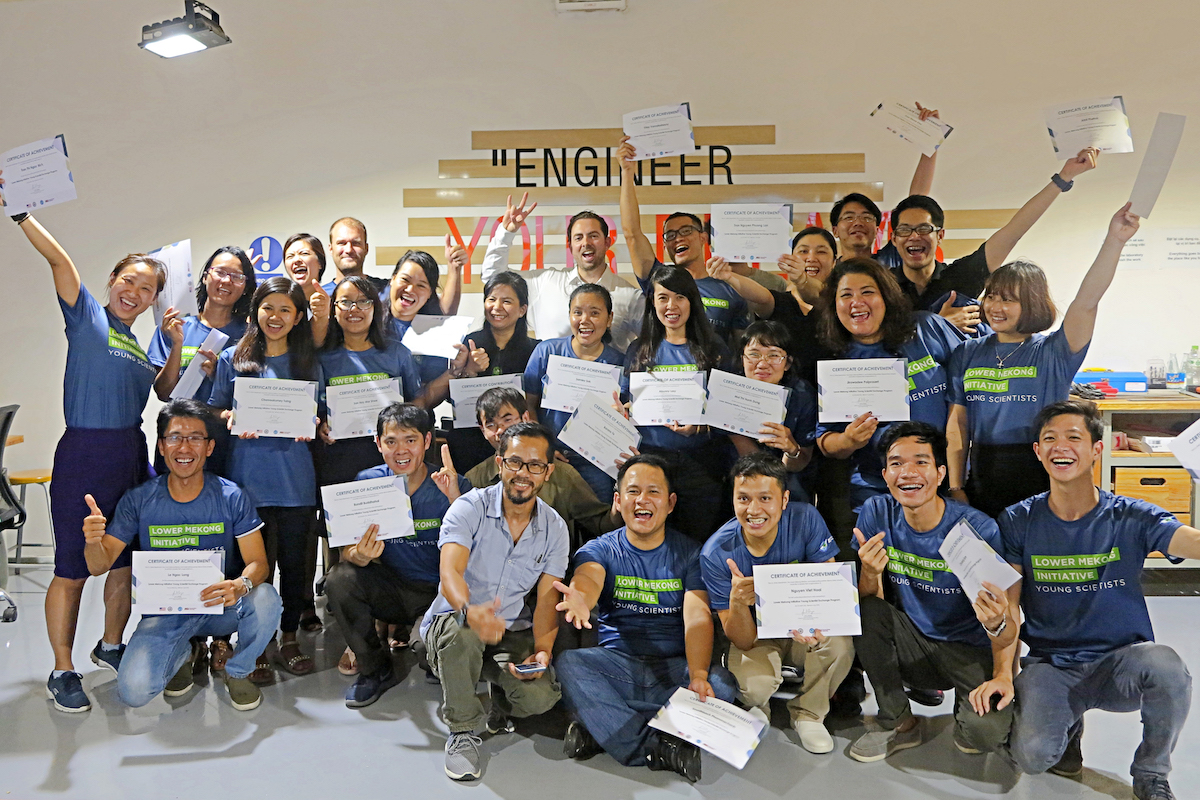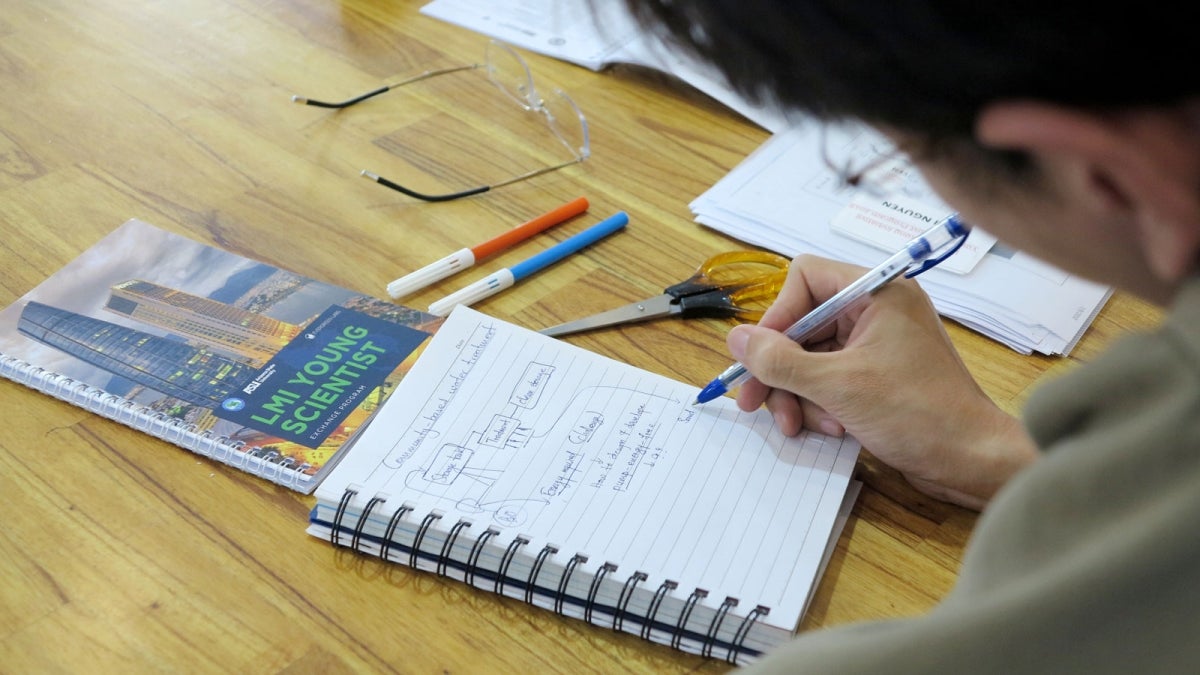Arizona State University’s missions of inclusivity and serving the community go beyond the state of Arizona, and even the United States. Funded by the U.S. State Department, ASU is implementing a three-year program to promote equitable, sustainable and inclusive economic growth in the Lower Mekong countries of Southeast Asia through education, science and the environment.
The Lower Mekong Initiative Young Scientist Program supports young scholars in Cambodia, Laos, Myanmar, Thailand and Vietnam to create a collaborative research community that will develop solutions to challenges people face along the Mekong River.
"Together, we are going to make a difference in the lives of these young scientists who will have an impact throughout the entire Lower Mekong region for years to come,” said Jose Quiroga, director of the LMI Young Scientist Program and associate director of global outreach and extended education in the Ira. A Fulton Schools of Engineering at ASU.

Lower Mekong Initiative Young Scientist Program participants pose for a group photo in front of the Maker Innovation Space in Danang, Vietnam, where they built prototypes of ideas inspired by real-world challenges along the Mekong River in Southeast Asia. The Maker Innovation Space is supported by the USAID Building University-Industry Learning and Development through Innovation and Technology Alliance, better known as the BUILD-IT Alliance, and implemented by Arizona State University. Photo courtesy of Jose Quiroga
Solving real-world challenges through multinational collaboration
In its first year, the 2018 LMI Young Scientist Program cohort included 24 young researchers from the five Lower Mekong countries who solved challenges related to water, energy and environmental sustainability. The four-week program in Vietnam included workshops, networking events and a scientific symposium to share knowledge, ideas and experiences such as authoring peer-reviewed scientific research papers. They also met with companies in the region to see what solutions are already being developed and to learn about the skills employers are looking for in prospective employees.
Throughout the four weeks, scholars worked together on international and multidisciplinary teams to create prototypes for solutions to water, energy and sustainability issues. They created prototypes of an eco-floating farming system made of affordable, recycled materials for residents of floating villages on the Mekong River; a low-cost, easy-to-maintain household wastewater treatment system to prevent the transmission of pathogens for households that practice aquaculture farming (such as raising fish and shellfish); a seesaw-powered water filtration system to provide safe and clean drinking water access for primary schools in rural areas; and an energy warning system for smart electric meters to help conserve energy used by appliances.
Waste material turned into heavy metal adsorbent earns seed grant
As Vietnam’s industrial sector grows, mitigating pollution is a priority for both industry and academia. An LMI research team is working to tackle pollution caused by one of Vietnam’s leading agricultural sectors.
LMI Young Scientist Program participants were encouraged to submit proposals for the LMI Young Scientist Seed Grant Program that awards up to $15,000 in seed funding to further develop and implement their projects. Proposals are judged on the quality of their idea, project planning, the team’s ability to achieve objectives and cost effectiveness.
Lan Nguyen Phuong Tran, a recent chemical engineering doctoral graduate and current lecturer of mechanical engineering at Can Tho University in Vietnam, participated in the 2018 LMI Young Scientist Program. She studies bioenergy and biodiesel production from agricultural byproducts. At the beginning of the program, she was especially excited about the opportunities it would bring.

Lan Nguyen Phuong Tran (center), a recent chemical engineering doctoral graduate and current lecturer of mechanical engineering at Can Tho University in Vietnam, works with other Lower Mekong Initiative Young Scientist Program participants. Photo courtesy of Jose Quiroga
“I would like to learn new research activities from other participants and lecturers, especially about the conversion of biomass into bioenergy and byproducts because the Mekong Delta is a rich source of agricultural waste,” said Tran, who is from Vietnam. “Another concern is to treat the pollutants from rice fields and remove pollutants and heavy metals from wastewater treatment plants in Vietnam.”
Tran joined in on the seed funding competition with LMI Young Scientist Program participants Bundit Buddhahai, a doctoral student in energy management technology at King Mongkut’s University of Technology Thonburi in Thailand, and Chanreaksmey Taing, a recent environmental design master’s degree graduate and current water and environment researcher and lecturer at the Institute of Technology of Cambodia.
Together, Tran, Buddhahai and Taing developed a proposal to synthesize a composite using cellulose acetate and zeolites from rice husk ash to remove heavy metals from wastewater.
As one of the top rice exporting countries, Vietnam also has an abundant supply of rice husk ash. Rice husks are a byproduct of the milling process and are burned to generate electricity, which produces ash. Currently, rice husk ash is thrown away or used in lower-value applications such as soil improvement and cement production.
The team proposes the silica found in rice husk ash can be used to synthesize zeolites, an adsorbent that can be used to remove heavy metal ions from wastewater due to their excellent ion-exchange capacity, selectivity and compatibility with the natural environment. However, due to the difficulty of separating zeolites from the solution after absorption in large-scale wastewater treatment, the team developed a composite of zeolites and organic polymers like cellulose acetate.
Their actionable results and potential for advancement earned the team the $15,000 in seed funding. They also learned essential skills in grantsmanship, opening up the potential for additional grant funding from Vietnam’s National Foundation for Science and Technology Development, the Ministry of Education and Training and other local Mekong Delta region funding.

A certification ceremony during the last day of the Lower Mekong Initiative Young Scientist Program at the Arizona State University Makerspace in Danang, Vietnam. Photo courtesy of Jose Quiroga
Focus shifts to health challenges in program’s second year
In its second year, the 2019 LMI Young Scientist Program will challenge Lower Mekong-area graduate and doctoral scholars to solve challenges in public health using bioinformatics. The four-week summer program will be hosted at the National University of Laos, or NUOL, in Vientiane in collaboration with the university’s faculty of engineering.
The LMI Young Scientist Program is recruiting current master’s degree and doctoral students, or recent graduates of statistics/biostatistics, informatics/bioinformatics, epidemiology, public health, data/information science and mathematics from Cambodia, Laos, Myanmar, Thailand and Vietnam. The 2019 program aims to recruit up to 34 participants by May 17.
“Since this program is open to eligible candidates in the five LMI member countries, we encourage Fulton Schools faculty and students to forward this opportunity to their colleagues in Cambodia, Laos, Myanmar, Thailand and Vietnam,” Quiroga said.
Participants will be challenged to form multidisciplinary and multinational teams and develop a prototype using physical or computational models to help solve public health issues related to monitoring, modeling and controlling vector-borne diseases and outbreaks.
The projects completed by LMI Young Scientist Program participants could lead to the formulation of public policy and public health strategies for the region, and could earn additional local, national or international funding to further their research and collaboration.
Top image: Arizona State University supports young scientists in Cambodia, Laos, Myanmar, Thailand and Vietnam to collaborate and create innovative, real-world solutions to challenges people face along the Mekong River in Southeast Asia. It is done through the Lower Mekong Initiative Young Scientists Program, funded by the U.S. State Department. Photo courtesy of Jose Quiroga
More Environment and sustainability

A world full of plastic ... not fantastic
Editor’s note: This is the seventh story in a series exploring how ASU is changing the way the world solves problems.When Timothy Long’s kids were growing up, he never let them toss…

Team wins $10M XPRIZE Rainforest competition for novel solution
Several Arizona State University experts are on a team that created a new way to put a price on the rainforest in order to save it, and on Friday they won the top award in the prestigious $10 million…

ASU President Michael Crow named to TIME100 Climate list
Arizona State University President Michael Crow has been named to the 2024 TIME100 Climate list of leaders and innovators driving real climate action.The list includes leaders across a range of…
